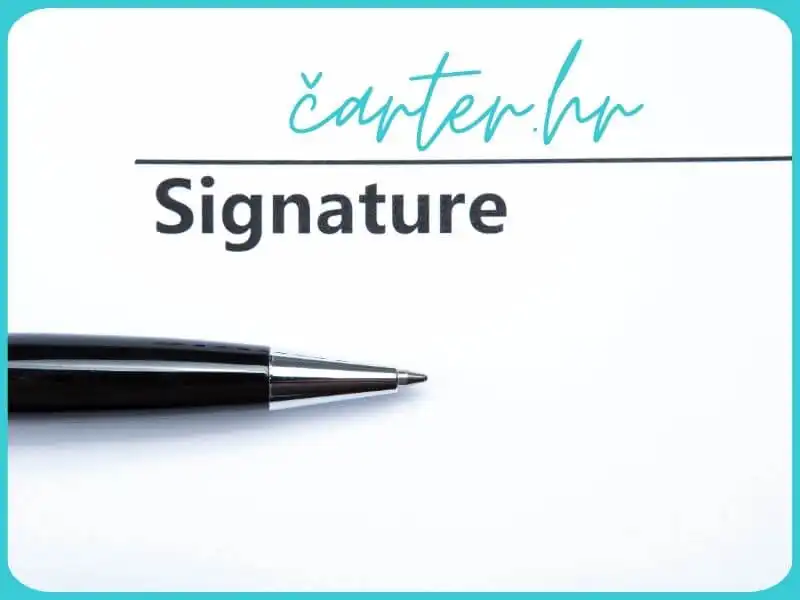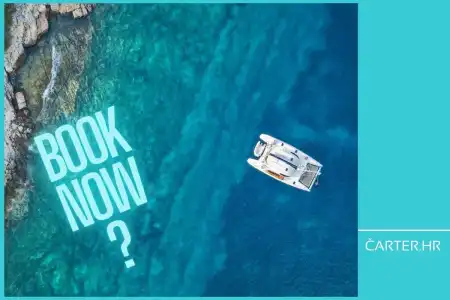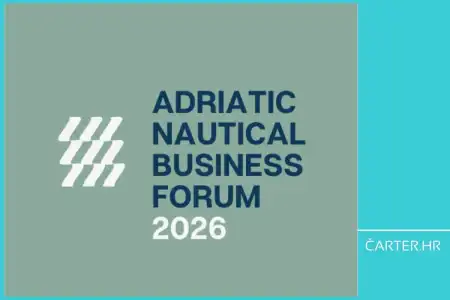
- 09.07.2024.
- News, Regulations
Learn about applicable contracts in the yacht charter industry, their content, and specific aspects you need to pay attention to in order to align your operations with proper regulation enforcement.
The topic of this article is contracts in the yacht charter industry.
The Maritime Code regulates this matter. The Obligations Act is the special law governing contracts that applies in the absence of relevant provisions in the Maritime Code.
The Regulation on Boats, Dinghies, and Yachts and the Regulation on the Conditions for Performing Vessel Rental Activities with or without a Crew and Providing Accommodation Services on a Vessel elaborate on the provisions of the Maritime Code related to yacht chartering.
The text will further address the content of various types of yacht charter contracts, specifically the various forms of "black yacht charters" that arise in practice and hinder the proper application of the correct regulations.
Participants in contractual relationships in the yacht charter industry include yacht charter companies, vessel owners, brokerage agencies, and end service users. To avoid undesirable effects, it is necessary to comprehensively cover all aspects of relationships. The content of contractual provisions also affects the type of tax obligation.

Relevant regulations
The Maritime Code is the primary legal source for vessel leasing contracts in our legal system.
However, the Maritime Code is not the only legal source applicable to ship leasing contracts. For legal matters not explicitly addressed within the Maritime Code, the provisions on leasing contained in the Obligations Act will apply.
The Regulation on the Conditions for Performing Vessel Rental Activities with or without a Crew and Providing Accommodation Services on a Vessel prescribes the conditions and methods for performing yacht or boat rental activities with or without a crew (yacht charter), including providing accommodation services on a yacht or boat in the internal maritime waters and territorial sea of the Republic of Croatia.
This Regulation provides definitions of terms, which are also essential clauses in the contracts:
- Vessel
The Maritime Code defines a boat or yacht used for yacht charter activities. - Yacht charter activity
The rental of vessels or providing accommodation services on a vessel in the internal maritime waters and territorial sea of the Republic of Croatia, in accordance with the special Regulation governing the provision of services in nautical tourism. - Vessel rental
Providing the vessel to the end user for recreational purposes, with or without a crew, without accommodation services, for a predetermined and publicly available fee. - Accommodation service
Providing the vessel to the end user, with or without a crew, for a period during which passengers stay overnight on the vessel for a predetermined and publicly available fee. - Yacht charter company
A natural or legal person who owns or uses the vessel or has taken over responsibility for managing the vessel from the owner or user based on a written contract, thereby assuming the powers and responsibilities prescribed by this Regulation and the positive regulations of the Republic of Croatia concerning navigation safety and sea pollution protection.
The Regulation on Boats, Dinghies, and Yachts regulates the conditions for navigation, marketing, and/or use of recreational vessels, navigation areas, conditions and supervision over the construction of yachts, boats, and dinghies, determination of seaworthiness of yachts, boats, and dinghies, documents for yachts, boats, and dinghies, and supervision over the implementation of the provisions of this Regulation.

Types of contracts in the yacht charter industry
There are various types of contracts in the yacht charter industry.
Apart from mandatory provisions, contracts allow parties to arrange their relationships as they wish.
According to the Maritime Code, a vessel leasing contract involves the lessor giving the lessee use of the vessel for rent payment and navigational activities.
A leasing contract generally involves the lessor obligating the lessee to provide a specific item for use, which is agreed upon by the lessee to pay rent.
From the definition of a vessel leasing contract, the essential elements include: the vessel as the leased object, the use of the vessel for navigational activities, rent, and the contract duration.
In the yacht charter industry, this means the vessel owner (individual or legal entity) leases the vessel to a yacht charter company. The yacht charter company takes on yacht charter management (marketing, organizational and operational tasks, booking, etc.).
The owner has the right to use the vessel if it is not previously reserved. This clause must be well elaborated in the contract as it is often a point of contention between the lessor (owner) and lessee (yacht charter company).
Yacht charter services can be provided directly to the guest or through an agency.
An agency can act as a service provider by acting as an agent/intermediary, offering the yacht charter service as its own or as a service acquired from the yacht charter company.
As an agent/intermediary, according to the Obligations Act, an agency charges an agreed commission for its services.
An agency may provide the yacht charter service as its own if certain tax conditions are met: the leased vessel must be classified as a cruise vessel, and the agency must register the crew and passenger list and submit a request for user rights in the central database. Only after these steps can the agency offer the yacht charter service as its own (taking on the role of a yacht charter company).
A third option is for the agency to offer yacht charter service with accommodation in its own name, acquired from another taxpayer (a yacht charter company that provided a professional crew -skipper, etc.).
The agency's clear position must be evident in the contract with the business partner, whether it's mediation/representation, its own service, or a service requiring a special tax procedure. The agency's clear position is the basis for applying tax rules.
Contracts for providing accommodation services on vessels are typically standard forms and unilateral toward the end user. The end user can only sign them without influencing the contract content. Such a contract essentially represents general terms imposed on the end user.

A satisfied client is the best advertisement
Contracts reflect the will of both parties, making it crucial for them to be drafted to everyone's satisfaction.
It is important that contracts are clear since establishing contractual relationships leads to various effects, including tax obligations.
Contracts are the foundation of satisfactory service use and quality business operations (business policy), so it is advisable to draft them professionally.
A satisfied client is also the most profitable.
Each contract reflects a specific situation, and for this reason, it is not advisable for companies to use contract templates from other companies.
If you have any questions regarding yacht charter contracts, contact us!
Categories of trends
- News
- Sale
- Marketing
- SEO
- Web design
- Social media
- Technology
- Regulations
- Management
- Education
- Finances
- User experience
Newsletter
Sign up for the newsletter and receive the latest trends and tips straight to your inbox




